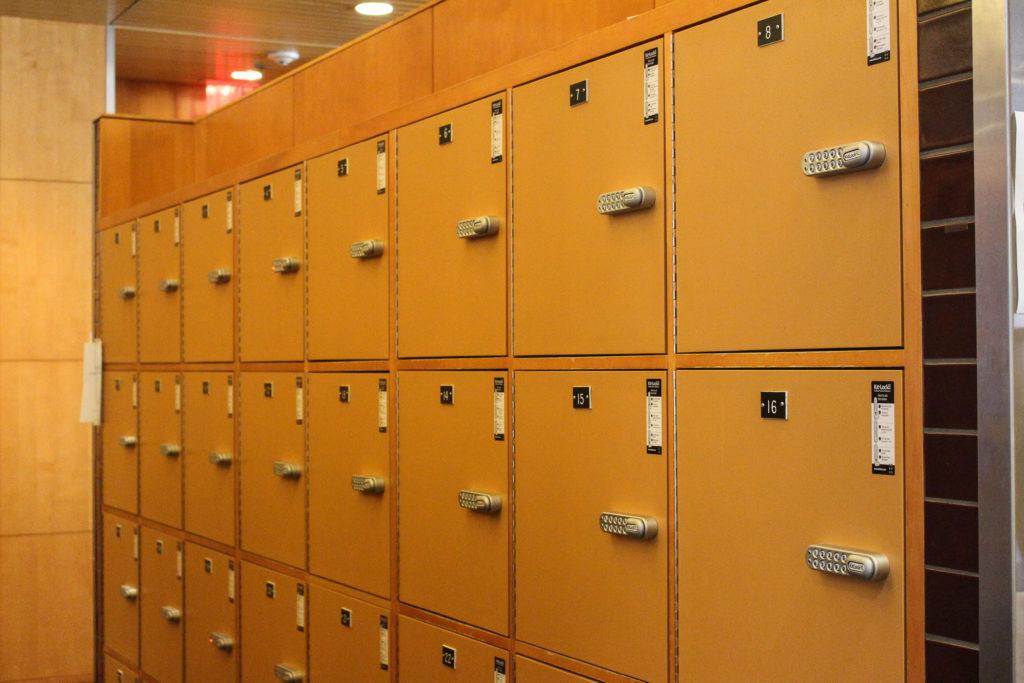In response to thefts that occurred outside of the Dining Hall last spring, Campus Safety and Dining Services have worked together to strengthen security in the Joe Rosenfield Center (JRC). Efforts have included installing security cameras and lockers outside of the Dining Hall.
As Dining Services does not allow large bags and bottles during meals, students generally leave their belongings outside on the shelves when entering the Dining Hall. While students ideally operate under the philosophy of self-governance in regards to other people’s property, a number of items were reported stolen last semester and began to raise concerns in the campus community.
The recent addition of security cameras came largely to address those concerns and discourage potential thieves. There are seven of the cameras posted throughout the JRC, at the exterior doors to the building and the lobby area outside of D-Hall.
“The footage captured is stored on our servers and available for review when necessary. Camera footage is reviewed in support of investigation into reported crimes in the building, such as theft or for risk management and insurance purpose, for instance damage to college property,” wrote James Shropshire, director of campus safety, in an email to The S&B.
The footage is recorded and saved for 15 to 30 days “depending on the established protocol,” he added.
In addition to the cameras, lockers were installed just outside the D-Hall this past summer over a four to five-week period, according to Rick Whitney, assistant vice president for facilities management. According to Director of Dining Services Jeanette Moser, who wrote an email to The S&B, the idea for installing lockers came from a group of administrators on campus including past Associate Vice President of Student Affairs, Director of Campus Safety, Director of Facilities Management, Associate Director of Facilities Management.
In the time since the lockers appeared, some confusion has arisen regarding students “reserving” lockers for longer periods of time than they should. Ideally, a student would put their belongings in a locker, eat in the Dining Hall, then come back and take their stuff, leaving the door unlocked for someone else. When asked to comment on this, Moser wrote, “The intended use of the lockers is for short term storage of valuable items while guests of the JRC attend meetings and/or events, use the game room and dine in the Marketplace.”
The lockers also come with the added responsibility of remembering codes so that students can retrieve their belongings. Moser wrote that students have an obligation to respect that “others want to store valuables in the lockers for short term use. Thus we hope that everyone would limit their use of the lockers to the times they are in the JRC and are not able to have their valuables with them.”






















































